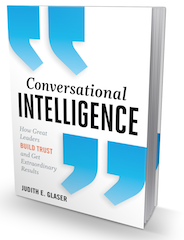No products in the cart.
The Art Of Resistance

We love instant gratification. The idea of wanting something and getting it now seems so satisfying. We want a better body now. We want more money now. We want to be an influential person now. No matter how much we want it, these desires require one common thing: commitment. It’s a commitment to hard work and consistent choices, so you can reap the benefits of delayed gratification.
Bad habits develop from repeated mindless choices. One small choice turns into two, then into a thousand, and before long, you can’t remember how you got to be 20 pounds overweight or stuck in a dead-end job. Overcoming bad habits is not the most challenging part of the journey; it’s changing our mindset. When we focus on the pain of change and resisting change, we fail to focus on what matters most: changing.
It wasn’t long ago that I received a call from a client, Olivia. She was in the financial services industry and needed my help. Except the help wasn’t for her this time. Rather, it was for her client, Barbara, who was facing a lawsuit. Olivia believed Barbara would fare better if her communication skills were polished and refined. Despite having agreed to the coaching, Barbara failed to show up for our first coaching session. She told Olivia that she decided that help wasn’t necessary because she was a good communicator.
I have worked with many change-resistant clients, but never one in as much denial as Barbara. What is surprising, however, is not the number of people who are in denial, but how many know they need to change and still fail to do anything about it. For these people, resistance to change is an art form.
Often, our resistance to change is hard-wired, and there are a number of reasons we resist change. The unknown often brings pain and discomfort as we create new habits and ways of being. With change, however, come results. By choosing to pass on dessert when it looks so good or going to the gym instead of sleeping late, we can reap the rewards. Professionally, we must put our ego aside and allow someone to share with us the painful truths that reveal our weaknesses and mistakes. It’s only when we embrace change and its associated discomfort that sought-after results can occur.
There are four types of people when it comes to dealing with resistance:
The Person In Denial
This close-minded, confident person knows they can improve their skills, but they don’t believe they need to. Their ego holds them back from seeing what they lack. Unless they are willing to seek feedback and the truth, they will likely never change.
The Argumentative Person
This closed-minded person is insecure. They strongly resist change and disagree with any suggestions that imply change is needed. They see constructive feedback as confused, misguided or misinformed. As a result, an argumentative person will continue to get the same results they’ve always gotten in life and at work.
The Questioning Person
This person is open-minded but also insecure. They want to change and make improvements, but they fear failure and often doubt they have the sticking power to do the work required. While there is hope for this person, their hesitation keeps them from fully committing to the process necessary to learn and change.
The Person Who Is Willing And Able
This confident, open-minded person is ready to embrace change. They know change is necessary to improve and are confident enough in who they are that they see constructive feedback as a tool for growth, not a blow to their ego.
Which kind of person are you? Are you letting resistance hold you back from achieving what you want in life, here and now?
If you desire a promotion but can’t seem to get beyond where you are now, or if you want greater influence in the workplace but can’t seem to get others to act upon your ideas, you need to identify where you are on the resistance scale. Too often, we live in resistance until a crisis forces us to change. If we can endure the pain, we can resist change. Think about how many people you know who started working out and eating right only after the doctor said they were facing a serious health crisis.
The thing is, we don’t have to live in the pain of our current situation. We can choose to change by committing to do the work necessary to grow from results. Why wait until a promotional opportunity presents itself at work to start improving your communication skills? Why wait until the doctor says you’re prediabetic to start eating right? Why wait until the company announces a round of layoffs before you try to become influential in your current role?
We don’t have to wait. While we might not get instant results, we can love the instant gratification by choosing to change right now. What changes do you desire? Stop resisting change. Commit to the work so the “now” of tomorrow becomes your “now” of today.
Latest posts by C-Suite Network (see all)
- [PRESS RELEASE] C-Suite Network™ Expands to Dallas and Announces Game-Changing Partnership with Flex Workspace Solutions - January 9, 2024
- Ushering in the Future 500 – White Paper - September 8, 2022
- Make Candor a Priority - September 8, 2022






